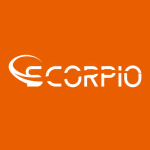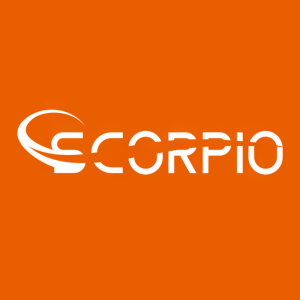Welcome to our dedicated page for Scorpio Tankers news (Ticker: STNG), a resource for investors and traders seeking the latest updates and insights on Scorpio Tankers stock.
Scorpio Tankers Inc (NYSE: STNG) provides specialized marine transportation services for refined petroleum products and crude oil worldwide. This news hub offers investors and industry professionals centralized access to official updates and market-relevant developments.
Track critical updates including quarterly earnings, fleet modernization initiatives, and strategic partnerships. Our curated collection ensures timely access to operational milestones and regulatory filings essential for informed analysis of this maritime transport leader.
Key updates cover vessel acquisitions, charter rate trends, and sustainability efforts tied to STNG's eco-friendly fleet. Bookmark this page for efficient monitoring of market positioning and operational strategies in the evolving energy logistics sector.
Scorpio Tankers (NYSE: STNG) reported a net loss of $20.2 million for Q3 2020, an improvement from a $45.3 million loss in Q3 2019. Adjusted net loss per share remains unchanged at $0.37. For the first nine months of 2020, the company achieved a net income of $170.4 million, translating to $3.11 earnings per share. A quarterly cash dividend of $0.10 per share was declared, set to be paid on December 14, 2020. Additionally, the company aims to enhance liquidity with approximately $63.9 million from refinancing efforts and has repurchased $52.3 million of convertible notes.
Scorpio Tankers (NYSE: STNG) will release its Q3 2020 earnings on November 5, 2020, at 9:00 AM EST. Investors can join via a conference call or webcast, which will also be available telephonically. The company operates a fleet of 135 tankers with a 4.9-year average age, involved in marine transportation of petroleum products. Forward-looking statements hint at various uncertainties, including COVID-19's impact on demand and operational risks. For more details, visit www.scorpiotankers.com.
Scorpio Tankers (NYSE:STNG) announced that its President, Robert Bugbee, purchased 200,000 call options for a total of $266,000. The options have a strike price of $12.00 and will expire in January 2021. Scorpio Tankers operates a fleet of 135 tankers with an average age of 4.9 years, engaged in the marine transportation of petroleum products globally. The company aims to leverage its operations and financial strategies to navigate market challenges, including impacts from the COVID-19 pandemic.
Scorpio Tankers (NYSE: STNG) announced a liquidity boost of around $82 million through financing facilities, including a sale and leaseback of eight MR product tankers. The company expects to raise approximately $70 million after settling existing debts related to these tankers, with deliveries scheduled for Q4 2020. Additionally, a $12 million commitment has been secured for scrubber financing, expecting to generate about $66 million in further liquidity. The initiative aims to strengthen the company’s financial position amid evolving market conditions.
On September 24, 2020, Scorpio Tankers (NYSE: STNG) announced that Scorpio Services Holding Limited acquired 100,000 common shares at an average price of $10.79. Additionally, President Robert Bugbee purchased call options on 200,000 shares with a total value of $457,000, strike price at $12.00, expiring in April 2021. Scorpio Tankers operates a fleet of 134 tankers, with an average age of 4.8 years, providing marine transportation of petroleum products worldwide.
Scorpio Tankers (NYSE: STNG) has appointed SEB as Global Coordinator for a potential USD-denominated senior unsecured bond issue, with investor calls starting on September 24, 2020. The proceeds will be allocated for general corporate purposes. The bonds, if issued, will be primarily offered to qualified institutional buyers in the U.S. under Rule 144A of the Securities Act. The release emphasizes the company's forward-looking statements and risks, including impacts from COVID-19 on demand for petroleum products and operational challenges.
On September 9, 2020, Scorpio Tankers (NYSE: STNG) provided an update on its daily Time Charter Equivalent (TCE) rates for Q3 2020. The company reported improved TCE rates compared to Q3 2019, despite seasonal weaknesses and inventory reductions. The TCE rates for LR2, LR1, MR, and Handymax vessels were $19,250, $18,500, $14,250, and $10,000 respectively, with significant vessel utilization. CEO Emanuele Lauro emphasized the company’s focus on liquidity management and shareholder value amid an optimistic outlook for the remainder of 2020 and into 2021.
Scorpio Tankers (NYSE: STNG) announced a new $250 million Securities Repurchase Program aimed at enhancing shareholder value. From July 1 to now, the company repurchased $52.3 million of its Convertible Notes due 2022 and acquired 1,170,000 shares for $13.1 million in September. The current outstanding Convertible Notes face value is $151.2 million. The new buyback reflects the company's commitment to managing its capital structure effectively and is expected to potentially impact earnings per share while reinforcing investor confidence.
On September 2, 2020, Scorpio Tankers (NYSE: STNG) announced that Scorpio Services Holdings Limited purchased 103,896 common shares of the company at an average price of $11.10 per share. Scorpio Tankers operates a fleet of 134 tankers with an average age of 4.8 years, providing marine transportation of petroleum products globally.
Scorpio Tankers (NYSE: STNG) disclosed that Scorpio Services Holdings Limited has acquired 100,000 common shares at an average price of $11.32 each. Scorpio Tankers operates a fleet of 134 tankers, including various vessel types with an average age of 4.8 years, contributing to its marine transportation services worldwide. This acquisition by a related party may indicate confidence in the company's stock value amidst market fluctuations.


